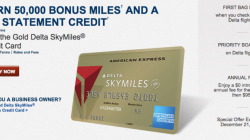Tax time is upon us, and sometimes people get concerned about the taxable value of their frequent flyer miles and hotel points. Between my wife and I, we have about 3 million points across various accounts. This could be worth between $30,000 and $300,000 depending on your valuation. (Most of them are high-value points like Ultimate Rewards, not Hilton HHonors or Club Carlson points.)
I am not an attorney, tax specialist, or other financial advisor. You should probably contact your own advisor if you have these concerns. But I can still tell you what I’ve learned over the years since I started accumulating this horde and how I interpret it.
Miles and points earned through travel are not taxable.
The IRS classifies miles and points earned through travel as a rebate. You pay $1,000 for a flight and get 10,000 miles. Those miles have some value, but you only got them because you paid for the ticket in the first place. In a sense, you bought them and already paid any applicable taxes. Income taxes don’t apply to purchases or rebates.
There is still cause for concern. People whose employers pay for their travel can often earn miles and points, but they didn’t personally cover those expenses. The “rebate” of miles and points is essentially an employee benefit. Other benefits are often taxable, depending on their exact nature. But the IRS has publicly stated that they have no current plans to tax employees for the miles and points they earn through business travel.
Specifically, the IRS “will not assert that any taxpayer has understated his federal tax liability by reason of the receipt or personal use of frequent flyer miles or other in-kind promotional benefits attributable to the taxpayer’s business or official travel.”
Miles and points earned through credit card spend are not taxable.
For the same reasons above, miles and points that you earn after making a purchase on your credit card are not taxable. This rule applies even if the rewards come in the form of a cash rebate.
Miles and points earned through credit card sign-up bonuses MIGHT be taxable.
This is a more complicated topic and one where you would definitely want to consult a qualified professional. I am not a qualified professional, just a guy on the Internet.
If a bank provides you with an incentive to perform some action, then that incentive can be considered taxable. One-time bonuses for opening a checking or savings account are such incentives. Chase regularly offers $100-200 to new customers and reports them as interest. Citi also does this for accounts that earn miles or points. You can dispute the value of the miles if you want — the IRS allows that — but we’d all prefer it if the paperwork wasn’t there in the first place. Some who have tried have found the courts side in favor of the IRS. Once a bank reports it, it can be very difficult to get it undone.
Credit card sign-up bonuses are a little more complicated. Because you have to make a transaction before you get the reward (whether it’s a single purchase or a $10,000 threshold), it could be construed as a rebate similar to the miles earned through ongoing spend. The size of that rebate is just much larger at the beginning.
Why is Citi sending its customers surveys?
I’ve had some of these details for a while, but I started writing this post because of an interesting thread on FlyerTalk in which Citi asked only a few questions — and they were largely focused on how other banks treat the complicated issue of credit card sign-up bonuses. From member drdavidge:
Have any of your miles credit cards sent you a 1099 tax notice for miles that were rewarded to you? Select all that apply.
Have any of your points credit cards sent you a 1099 tax notice for points that were rewarded to you? Select all that apply.
We’re all set! We told you this one would be quick!! Is there anything else you’d like to tell us at this time?
My conclusion: Citi is testing the waters. As the only major bank to send out 1099s for miles and points, it wants to know if it is at risk of driving away business if it extends this from traditional bank accounts to credit cards. An overly cautious position is often a smart one when there is a heavy regulatory risk at being wrong. But few banks seem to have followed it. Or have they? That’s the point of the survey.
I don’t think Citi wants to send 1099s to its customers if it doesn’t have to. It’s bad for business. More than anything, this survey suggests to me that Citi is thinking about halting their current practice if other banks are managing to get away with it and not attract unwanted federal scrutiny.





